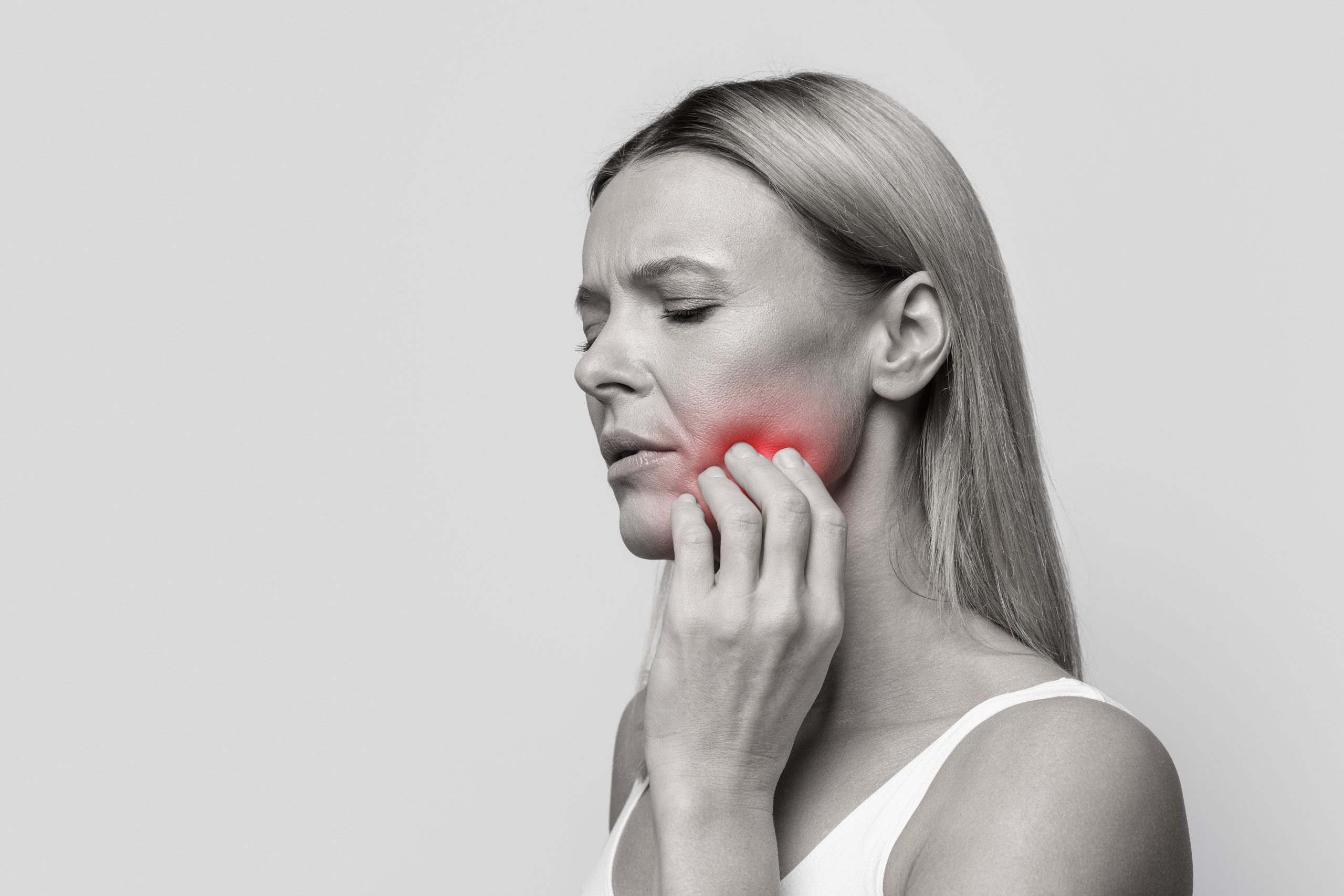A good night’s sleep is important for lots of reasons, and it can do more than just boost your energy levels. If you’re experiencing jaw pain, improving your sleep could be more beneficial than you might think. Peaceful, restorative sleep can help your muscles relax, lower stress hormones and reduce unconscious jaw movements like clenching or grinding. This will help prevent the jaw joints and muscles from becoming tense, fatigued and painful, and prioritising rest is a simple yet effective way to improve your quality of life.
Conditions like temporomandibular disorders (TMDs) can be triggered or worsened by poor sleep, leading to increased pain, problems opening and closing your jaw, and other frustrating symptoms. Knowing how sleep impacts jaw function and what you can do to improve jaw health can help you avoid more serious interventions like jaw surgery in the future. In this post, we have explored the importance of a good night’s sleep in preventing temporomandibular joint (TMJ) problems and how Mr Elledge can assist you with long-term jaw health.
How TMJ Disrupts Sleep and Worsens the Condition
Often, the symptoms of TMJ problems make it harder to get to sleep and stay asleep overnight. This disrupted sleep then makes TMDs more difficult to manage. Unfortunately, this cycle can be ongoing, leaving you stuck with jaw pain, restless sleep and worsening symptoms, and several factors contribute to this problem:
● Pain and Discomfort
Even mild jaw joint or muscle pain can make it difficult to sleep, especially when the discomfort is worse at night. For many people, this results in shorter, lighter sleep, leaving them feeling exhausted. The pain can even be worse in the morning too, as the muscles haven’t had the chance to relax and recover overnight. Over time, a lack of restorative sleep can reduce the body’s ability to cope with pain and discomfort, creating a vicious cycle that makes TMJ issues more challenging to control.
● Teeth Grinding
Habitual clenching or grinding during sleep is incredibly common and often linked to TMJ dysfunction. Lots of people are unaware they grind their teeth, but it can cause muscle soreness, morning headaches and added strain on the jaw joint. Not to mention, in severe cases, it can even damage the teeth. This repetitive clenching or grinding will prevent the jaw muscles and ligaments from relaxing overnight, increasing the likelihood of myofascial pain.
● Stress
Mental stress and anxiety will often present themselves physically, particularly in the jaw. Often, stress increases muscle activity and tension in the face, making people more likely to clench their teeth during the night, which can exacerbate TMJ symptoms and prevent a restful night’s sleep. The combination of high stress hormones and interrupted sleep will have a lasting impact on your body, meaning TMJ problems can quickly escalate if they’re not addressed properly.
● Increased Muscle Tension
Persistent tension in the muscles around the TMJ can cause TMDs. Sleep provides the body with an opportunity for muscle recovery, but if your jaw isn’t relaxed and the muscles remain tight, it can cause fatigue. This chronic tension makes it harder to move the jaw and can result in stiffness or restricted movement in the morning. Over time, the constant tension and pressure on the jaw can increase the risk of more serious problems.
When to Book a Consultation with a Specialist
Since TMD is multifactorial in terms of underlying causes, it can be difficult to know when you should book a consultation with a specialist. Ultimately, if you are dealing with persistent pain in your jaw, face, temples or ears that doesn’t ease with rest, it may be beneficial to get some professional advice. Similarly, if you’re having difficulty moving your jaw, it keeps locking or you’ve noticed crunching, grinding and clicking noises, a specialist will be able to help.
It’s worth noting that in some cases, the pain can spread beyond the jaw. It isn’t uncommon for people to experience headaches, earaches or general facial soreness, which is actually caused by TMD. Speaking to an expert and getting some treatment, whether it’s medication, physical therapy, or occlusal appliances, can help prevent your condition from progressing and reduce the likelihood of jaw surgery being required. Thankfully, the majority of people with TMDs respond well to simple treatments with professional guidance.
Why Choose Mr Elledge?
At Elledge Surgical, we provide comprehensive support for TMJ problems, including a variety of treatment options. Consultant Oral and Maxillofacial Surgeon, Ross Elledge, regularly sees patients with TMDs and has the knowledge, training and experience required to reduce pain and improve your sleep. He is one of only a handful of surgeons in the United Kingdom able to provide the full remit of treatments for TMJ issues, from botulinum toxin through to total alloplastic joint replacement (TMJRs).
Regardless of the cause of your TMJ problems and whether non-surgical or surgical treatment is required, you can trust that you will be in very capable hands when you choose Mr Elledge. His tailored, patient-focused approach ensures every treatment plan is designed to meet individual needs and achieve the best possible outcome. By offering private care at a range of hospitals in the West Midlands, patients benefit from shorter waiting times, and he will do all he can to relieve pain as quickly as possible.
Make an Enquiry Today
It’s fair to say that a peaceful night’s sleep can make all the difference to your health and if you’re experiencing TMJ dysfunction, it’s crucially important. Disrupted sleep can lead to pain, grinding, clenching, tension and worsening jaw problems. If you have noticed any of the symptoms discussed in this post, it’s worthwhile reaching out to a specialist.
To book a consultation with Ross Elledge, don’t hesitate to contact us today. You can email enquiries@elledgesurgical.com or call +44(0)203 326 3827 and we will get back to you as soon as possible.

